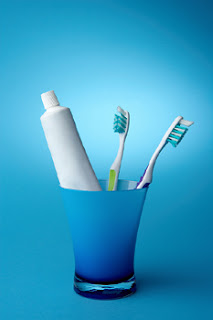February is also American Heart Month!
February 8th, 2013
 You may remember our post from last week, when we discussed February being National Dental Health Month and the benefits of visiting our office every six months (or as recommended). But did you know February also marks American Heart Month?
You may remember our post from last week, when we discussed February being National Dental Health Month and the benefits of visiting our office every six months (or as recommended). But did you know February also marks American Heart Month?
It’s a great time to take notice of the health of your heart, as cardiovascular disease remains the leading cause of death in the world, according to the American Heart Association.
Studies have shown a correlation between gum disease and heart disease, underscoring the importance of good oral health care. Visiting our office on a regular basis can help prevent gum disease or at least catch it in its early stages. In observance of Heart Month, it’s also important to know your numbers: blood pressure (less than 120/80), cholesterol (less than 200) and BMI (less than 25).
A healthy mouth begins with a visit to our office! If you have any questions about your heart health, or to schedule your next appointment, please give us a call today!




 Website Powered by Sesame 24-7™
Website Powered by Sesame 24-7™